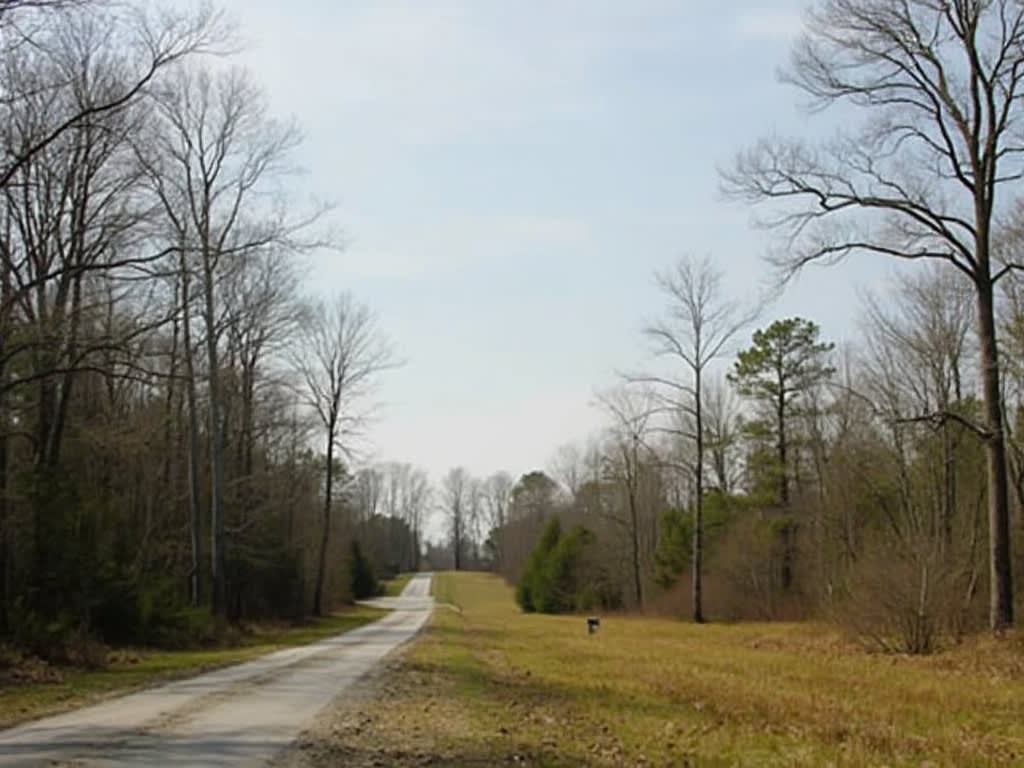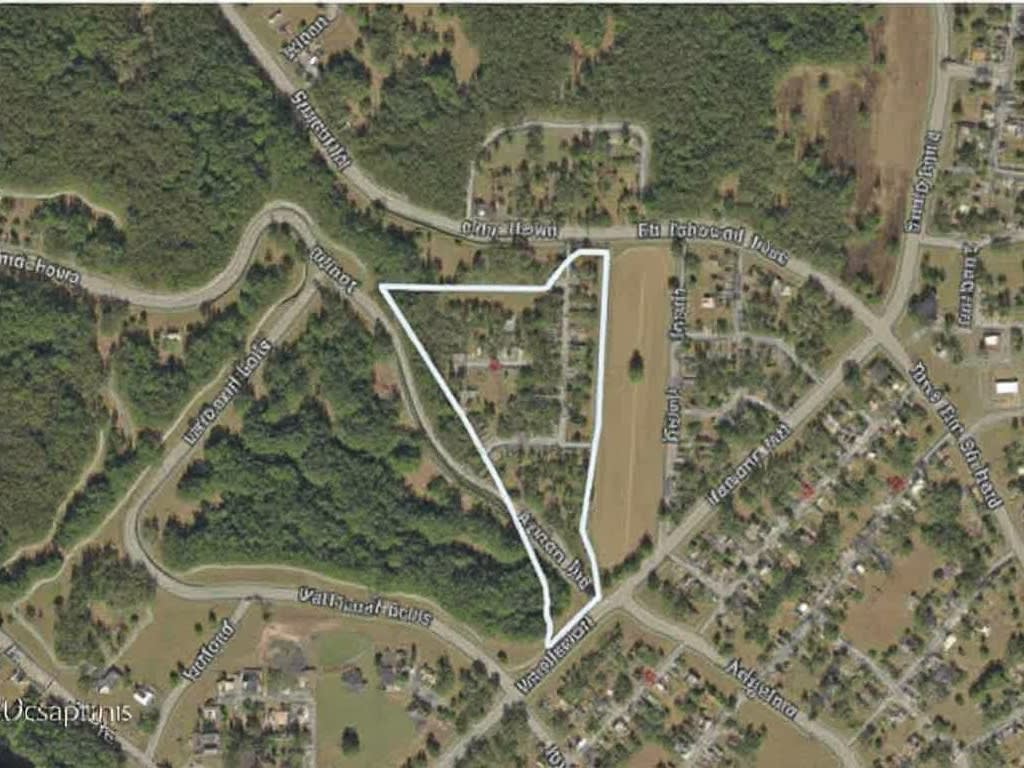The process of selling inherited land in North Carolina requires careful attention to legal steps, with probate lasting anywhere from three months to a year. You’ll need specific documents to prove your ownership rights. The way the land was owned directly impacts your ability to sell – joint ownership permits immediate sales, while tenants in common ownership in North Carolina must get approval from all heirs before proceeding.
Key Takeaways:
- Essential paperwork including probate documents, death certificates, and confirmed title verification to sell inherited land
- Expect to pay transfer tax (0.2%), property taxes, and possible estate taxes on properties exceeding $12.92 million
- Selling to cash buyers closes in 7-14 days but generally nets 50-75% of market value
- Listing with real estate agents takes about 75 days but helps secure maximum property value
- Setting up a revocable living trust or joint ownership lets heirs skip the probate process completely
Understanding Your Rights and Requirements When Selling Inherited Land
Legal Process and Ownership Types
Selling inherited land in North Carolina starts with determining if probate is needed. I’ll need to go through probate if there’s no will, if the will faces challenges, or to validate an existing will. The process typically runs between three months to a year, during which an executor manages the estate under court supervision.
The type of land ownership directly affects the sale process. Joint ownership with right of survivorship lets the surviving owner sell immediately, bypassing probate. However, tenants in common ownership means each heir owns a specific percentage, making unanimous agreement essential for the sale.
Here are the key requirements for selling inherited property:
- Valid proof of inheritance through probate court documents
- Written agreement from all heirs if owned as tenants in common
- Death certificate of the previous owner
- Clear title verification
- Tax clearance certificates
If heirs can’t reach an agreement on the sale, I can file a partition action through the court. This legal process forces either a physical division of the property or a sale with proceeds split among heirs. While this option exists, it’s often costly and time-consuming, making negotiation between heirs the preferred approach.

Essential Documentation for Selling Inherited Property
Primary Legal Documents
Selling inherited land in North Carolina requires specific legal paperwork to prove ownership rights. I recommend starting with probate documents and letters of administration – these establish your legal right to sell. An affidavit of heirship serves as a sworn statement identifying all legal heirs, while a transfer on death deed can simplify the inheritance process.
Property and Financial Records
Before listing the property, gather these critical documents:
- Property deed showing current ownership status
- Recent property tax statements and payment records
- Existing mortgage documentation (if applicable)
- Power of attorney papers if acting on behalf of other heirs
- Current title insurance policy
- Property survey reports
A clean title is crucial for any land sale. Title searches uncover potential claims or liens against the property. North Carolina law requires resolving any title issues before transferring ownership. I’ve found that working with a local title company can streamline this process and identify potential problems early.
For multiple heirs, power of attorney documentation lets one person handle the sale on behalf of others. This can speed up the process significantly. Property tax records prove the land’s good standing with local authorities, while mortgage documents confirm any remaining debt obligations that need clearing before sale.
Financial Implications and Costs
Tax and Fee Structure
Selling inherited land in North Carolina involves specific financial obligations I recommend understanding before listing. The capital gains tax starts from the property’s value at inheritance, not the original purchase price. This stepped-up basis often reduces your tax burden compared to regular property sales.
North Carolina requires key payments that impact your final profit:
- Transfer tax: 0.2% of the sale price
- Property taxes: Must be current before closing
- Estate taxes: Apply to estates valued over $12.92 million
- Real estate agent commission: 5-6% of sale price
- Repair and preparation costs: 4-5% of property value
- Closing costs: 8-10% of sale price
Any existing liens or mortgages need clearing before completing the sale. I suggest setting aside 15-20% of the expected sale price to cover these expenses. This buffer helps prevent financial surprises during the transaction process.
The timing of your sale also affects tax implications. If you’ve inherited the land recently, I recommend consulting a tax professional to optimize your timing and potentially reduce your tax burden. Property improvements made between inheritance and sale can impact your capital gains calculations, so keep detailed records of any investments you make in the land.

Selling Options and Their Impact
Cash Buyer Route
Cash buyers offer a quick solution for inherited land sales, but they come with specific trade-offs. You’ll receive a faster closing, often within 7-14 days, and won’t need to handle repairs or improvements. However, cash offers typically range between 50-75% of market value, meaning you’ll sacrifice potential profits for speed and convenience.
Traditional Sales Methods
Working with a real estate agent gives you access to professional marketing and negotiation skills. Properties listed with agents in North Carolina spend an average of 75 days on the market. Before listing, I recommend getting a professional appraisal to understand your land’s true market value. This helps set realistic pricing strategies and improves negotiation positions.
Consider these key factors for a successful sale:
- Get a professional home inspection to identify potential issues
- Gather all property documentation, including surveys and title papers
- Clear any liens or back taxes before listing
- Consider basic land maintenance to improve curb appeal
- Research local zoning laws that might affect the sale
For sale by owner (FSBO) can save you agent commissions but requires significant time investment. You’ll need to handle marketing, showings, and negotiations yourself. While this method might save money, it often results in longer selling times and potentially lower offers due to limited exposure to qualified buyers. If you’re considering selling vacant land by owner in North Carolina, be prepared to manage the entire process independently.
Strategic Ways to Avoid Probate
Living Trust Creation
Setting up a revocable living trust can help your heirs bypass lengthy probate processes. I recommend transferring property into a trust while maintaining control during your lifetime. This legal arrangement lets property pass directly to beneficiaries after death, saving both time and money.
Property Ownership Options
Joint ownership with right of survivorship presents another effective probate-avoidance strategy. The property automatically transfers to the surviving owner upon death, skipping court proceedings entirely. Here are key steps for advance planning:
- Create detailed property documentation
- Draft clear beneficiary designations
- Update title deeds to reflect trust ownership
- Register the trust with local authorities
- Schedule regular trust reviews
Starting trust planning early provides maximum benefits – I suggest beginning at least six months before intended property transfer. This timeline allows for proper document preparation and meets North Carolina’s legal requirements for trust validity.

Preparing the Property for Sale
Property Assessment and Legal Clearance
I recommend starting with a thorough property assessment to identify needed repairs before listing inherited land. A professional home inspection can spot structural issues, while an appraisal sets a competitive market price.
Here are the key steps to prepare inherited land for sale:
- Complete essential repairs like fixing broken fences, clearing overgrown vegetation, or addressing drainage problems
- Order a professional home inspection to document the property’s condition
- Get an official appraisal to set an accurate listing price
- Clear any existing liens or mortgages on the property
- Review current market trends to time your sale effectively
- Gather all property documents like deeds, tax records, and surveys
Remember that addressing these items upfront makes the property more attractive to buyers and helps prevent delays during closing. A clean title and well-maintained land typically sell faster and at better prices in the North Carolina market. You might want to consult with an attorney to sell land in North Carolina, especially when dealing with the complexities of inherited property.

